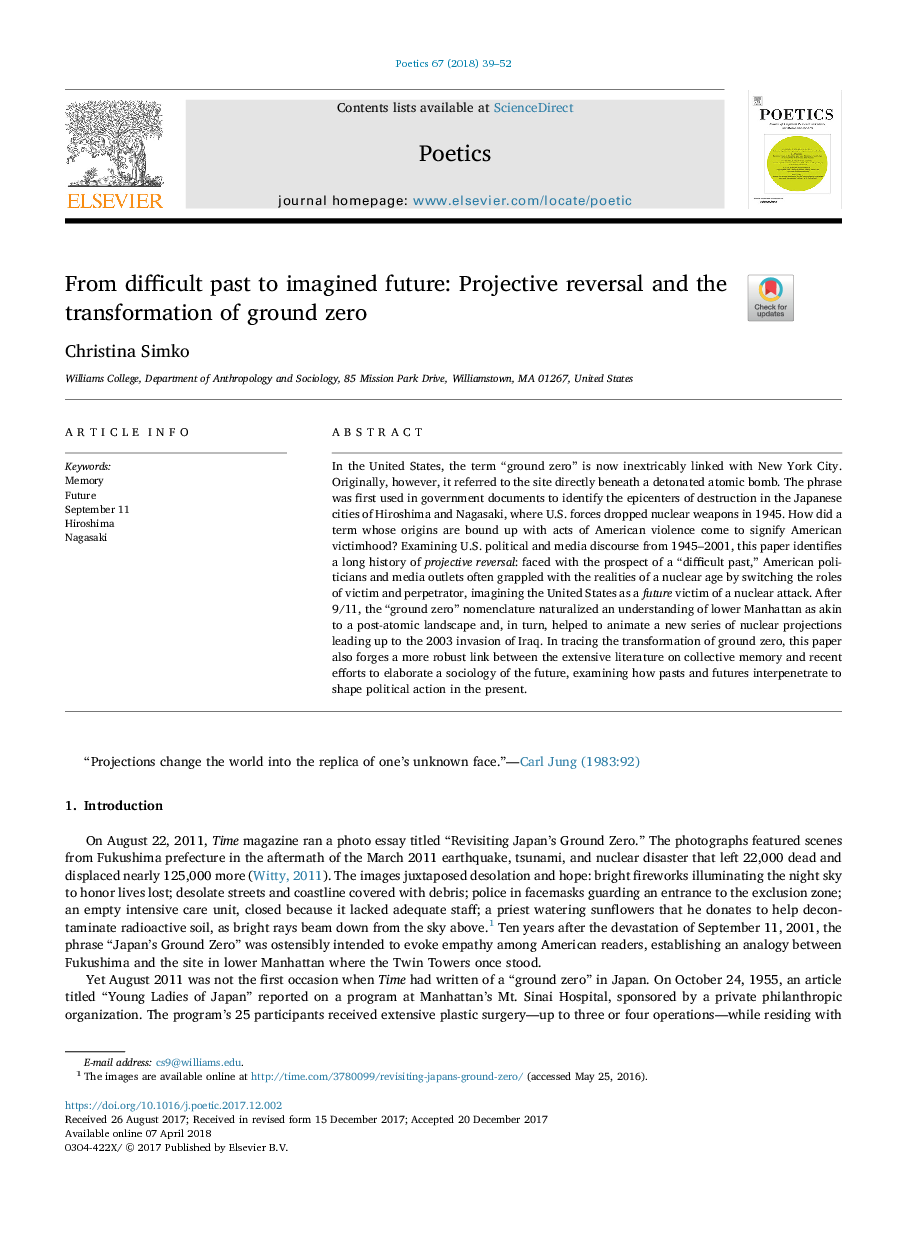ترجمه فارسی عنوان مقاله
از دشواری گذشته تا آینده تصور شده: معکوس طرحریزی و تحول زمین صفر است
عنوان انگلیسی
From difficult past to imagined future: Projective reversal and the transformation of ground zero
| کد مقاله | سال انتشار | تعداد صفحات مقاله انگلیسی |
|---|---|---|
| 132020 | 2018 | 14 صفحه PDF |
منبع

Publisher : Elsevier - Science Direct (الزویر - ساینس دایرکت)
Journal : Poetics, Volume 67, April 2018, Pages 39-52
ترجمه کلمات کلیدی
حافظه، آینده، 11 سپتامبر، هیروشیما، ناگازاکی،
کلمات کلیدی انگلیسی
Memory; Future; September 11; Hiroshima; Nagasaki;

